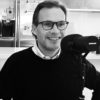Mastering Intensive Care 034 with Marianne Chapman
Do you have too many career interests outside of your basic clinical practice? Are your daily focus areas as few as three? Family, clinical and perhaps one other thing?
In this episode Australian intensivist, Marianne Chapman, speaks about how she keeps her life under control by focusing on her big three – family, clinical and research. This allows her to manage the stresses of an intensive care career. She sometimes has to say no very deliberately, and although she finds this hard, it helps her manage the workload. She notices that some of her colleagues seem to want to be experts in several areas, and whilst this may be important at the beginning of our careers, this can be a recipe for disaster for some of us over the longer term.
Marianne is a Senior Staff Specialist in Intensive Care Medicine at the Royal Adelaide Hospital and a Clinical Professor of Acute Care Medicine in the School of Medicine at the University of Adelaide, both in Adelaide, Australia. Her clinical research interests include gastrointestinal dysfunction underlying problems with the administration of enteral nutrition and the clinical effects of nutrition in the critically ill. Marianne is an eminent international researcher in this field and has published extensively on these topics.
Marianne and I recorded our conversation a little while ago and it’s great to be able to air it now. In the interview, Marianne spoke about:
- How she sees every clinical encounter as a teaching experience, and how she learns a lot from her senior trainees
- The feeling of being drained and tired from a busy day teaching at work
- How caring for the patient and their outcome, whilst improving our knowledge base, helps us become the best we can be
- What it is like to have moved into a new building at her hospital
- The benefits of doing multi-disciplinary and collaborative Grand Rounds
- What role she takes in urgent clinical encounters
- How deaths in her own family have made her realise that how we approach families can significantly influence grief
- How huge cost savings may eventuate if intensivists are well-trained in communication with families
- What words and phrases she uses in communication encounters
- The pros and cons of 7 day stretches for ICU consultants
- Why research helps her feel like she is doing better care for patients
- The difficulties of a research career – which brings a different form of stress to clinical work
- How she manages stress by remembering that family comes first
- The value she sees from physical exercise
- The difficulty associated with looking after colleagues we are worried about
- How she has balanced family and work over her career
- Her thoughts on the issues of gender in intensive care
- How she might manage the transition towards retirement
- Her concerns about some clinicians having a need to always do something – and that maybe less is better
- Becoming involved with clinical trials groups is a great way to start a research career
Show notes
My genuine hope with the Mastering Intensive Care podcast is to inspire and empower you to bring your best self to the ICU by listening to the perspectives of such thought-provoking guests as Wes Ely. I passionately believe we can all get better, both as carers and as people, so we can do our absolute best for those patients whose lives are truly in our hands.
Feel free to leave a comment on the Facebook “mastering intensive care” page, on the LITFL episode page, on Twitter using #masteringintensivecare, or by sending me an email at andrewATmasteringintensivecare.com.
Further reading and listening
- Full podcast collection on LITFL and Libsyn
- More conversation on Twitter (@andrewdavies66) and Facebook
Mastering Intensive Care
Dr Andrew Davies MBBS FRACP FCIC. Intensivist/researcher at Frankston Hospital, Melbourne. Aiming to bring my best self to work & life. | Mastering Intensive Care | New Normal project |

